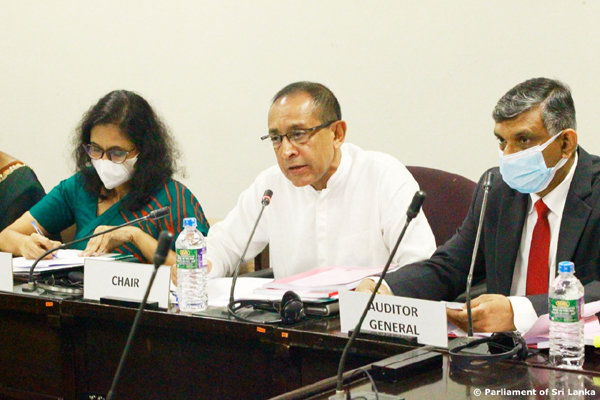Sri Lanka’s authorities failed to maintain minimum rice reserves even after spending Rs 292M on warehouse upgrades
2 min read
The Committee on Public Accounts (COPA) recently directed its attention to the failure in maintaining a special rice reserve of 8000 metric tons in accordance with the Colombo declaration of the SAARC Organization and the 16th Summit meeting, and the rice reserves of 100,000 metric tons not being maintained in the warehouses owned by the Food Commissioners Department of Sri Lanka all over the island in accordance with the cabinet decision dated 27/8/2008.
The Committee members inquired regarding the failure to maintain the aforesaid reserves despite the fact that 06 warehouses numbered 1, 7, 8, 9, 10, and 13 in the Veyangoda warehouse complex were modified in a scientific and natural manner. It was revealed that Rs.292 million has been spent from 2012 to 2019 to modify these warehouses.
Discussions on this regard took place at the Committee on Public Accounts which met yesterday (Oct. 20) under the chairmanship of Member of Parliament Kabir Hashim.
The meeting was called for by the Food Commissioners Department of Sri Lanka to examine the audit report on the maintenance of rice reserves and the performance of storage utilization.
The officials mentioned that their department requested adequate provisions from the treasury, but due to non-receipt, it was not possible to maintain the above-mentioned reserves. It was also revealed that on average, to maintain 1,00,000 metric tons of rice, about Rs.22 billion per year is required.
Officials stated that even though a storage complex capable of storing 2,50,000 metric tons has been scientifically modified, it has not been able to store the number of reserves equal to its maximum capacity so far and that the World Food Programme (WFP) and rice aid received from other countries have already started to be stored.
The committee also informed the Secretary to the Ministry to conduct proper research on the existing government food warehouse complexes across the country and collect data and submit a report containing specific information about the ownership of the warehouses within a month.
Irregularities in giving the warehouse complexes owned by the Food Commissioner Department to other government or private institutions on a rental basis and Monthly rent collection issues were discussed at the Committee. The committee informed that with the support of the Attorney General’s Department, the relevant agreements should be prepared as necessary.